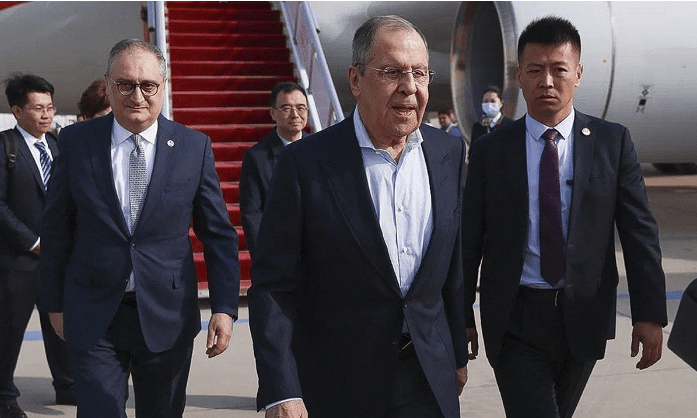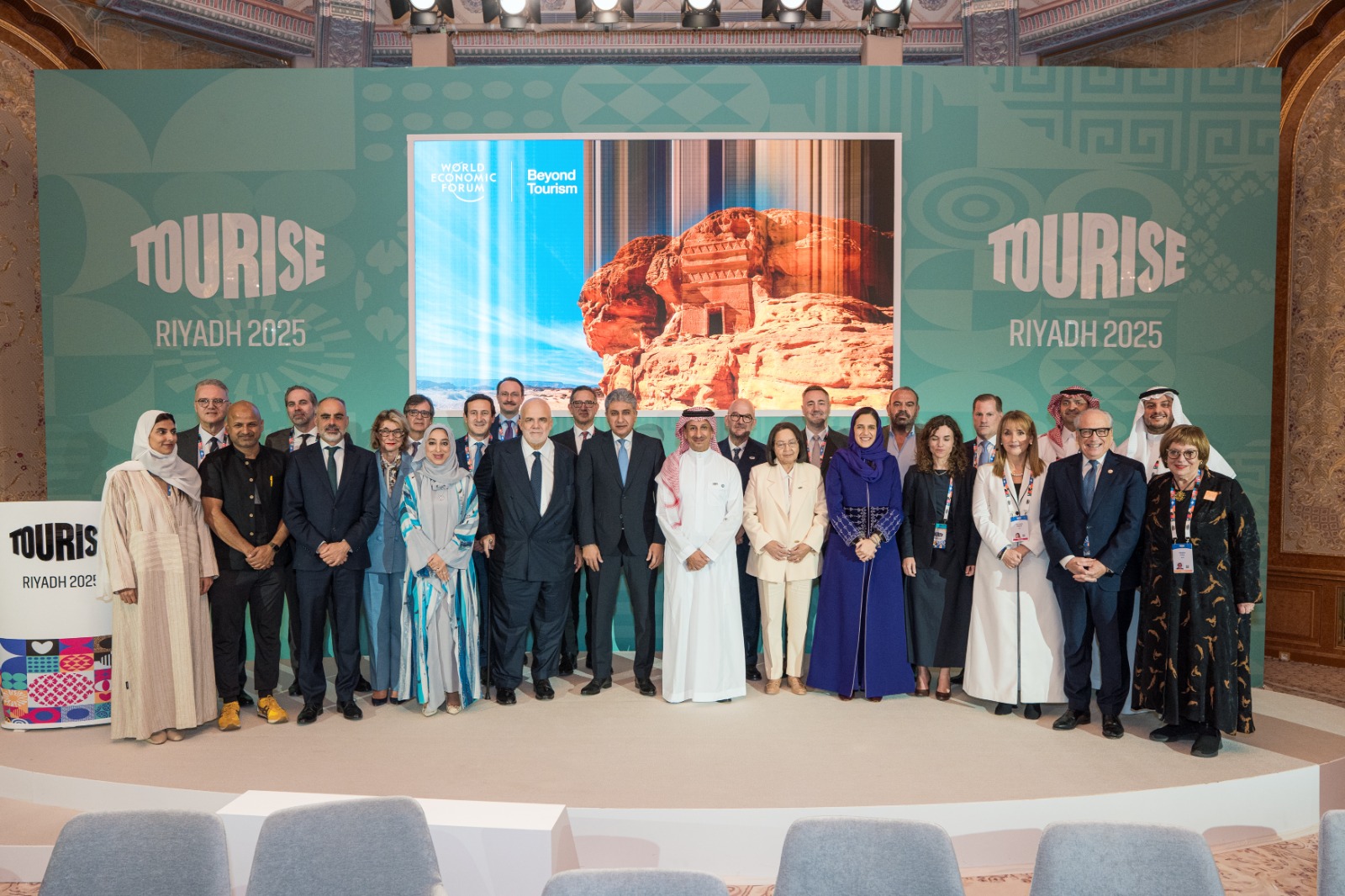
The strategic coordination between Pakistan, China, and Russia accentuates the necessity of trilateral cooperation in shaping the evolution of global affairs.

Russian Foreign Minister Sergey Lavrov’s recent visit to Beijing has not only solidified the diplomatic ties between Russia and China but also hinted at a potential reconfiguration of global alliances. As discussions between Lavrov and his Chinese counterparts spanned across a wide spectrum of global issues, from geopolitical tensions to economic cooperation, it became evident that Moscow and Beijing are increasingly aligning their positions on pressing matters. This growing cohesion between the two nations, particularly in the face of mounting pressures from Western powers, suggests a shifting landscape in international relations. With Russia and China deepening their bond, the world may witness a recalibration of power dynamics, challenging the traditional dominance of Western influence and opening avenues for new partnerships and alliances in the future.
The alignment between Russia and China on international issues, including disputes with democracies and NATO members, has become increasingly evident. While diplomatic discussions unfolded in Beijing, concerns over the situation in Ukraine were raised. The United States has expressed worries about Chinese companies allegedly supporting Russia in its invasion of Ukraine. However, China maintains that its stance on the Ukraine issue is objective and fair, denying any involvement in providing arms or military assistance to Russia.
Since the signing of a “no limits” agreement in 2022, Russia and China have forged a robust bilateral relationship, focusing on economic and strategic cooperation. China, in particular, views Russia as its fastest-growing trade partner. Despite facing numerous sanctions since its invasion of Ukraine, Russia has found solace in its economic ties with China, which have served as a crucial lifeline amid isolation from the Western world.
During Lavrov’s visit, discussions extended beyond bilateral ties to encompass regional cooperation in the Asia-Pacific region. Both nations emphasized the importance of coordination in maintaining security, stability, and development in the region. This sentiment was echoed by Vice Foreign Minister Sun Weidong, who described the current period as the best in history for China-Russia relations under the strategic guidance of Presidents Xi Jinping and Vladimir Putin have been central figures in nurturing the bond between China and Russia. However, in the West, suspicions persist regarding the deepening partnership between the two nations, especially concerning trade and defense collaborations. This growing alliance has stirred concerns among Western powers, who increasingly perceive it with anxiety. Nonetheless, both China and Russia are unwavering in their commitment to enhancing regional cooperation. They place significant emphasis on organizations like the Shanghai Cooperation Organization (SCO) as vital platforms for fostering closer ties and promoting stability in the region.
The Shanghai Cooperation Organization (SCO) is a regional intergovernmental organization founded in 2001. It comprises eight member states, including China, Russia, India, Pakistan, Kazakhstan, Kyrgyzstan, Tajikistan, and Uzbekistan. The SCO aims to enhance cooperation among its members in various fields, including politics, economics, security, and culture. One of the primary roles of the SCO is to promote regional stability and security by addressing common security threats, such as terrorism, separatism, and extremism. Member states conduct joint military exercises and share intelligence to combat these challenges effectively. Additionally, the SCO facilitates economic cooperation among its members through initiatives such as trade promotion, investment facilitation, and infrastructure development projects. The SCO also serves as a vital nexus for fostering unity and cooperation among its member states through a myriad of cultural exchanges and intimate people-to-people interactions. In its overarching mission to promote peace, stability, and development in the region, the SCO stands as a bastion of collaboration and mutual understanding. Moreover, it provides a platform for diverse voices to converge, igniting fruitful cooperation and dialogue among its members, thereby paving the way for a more prosperous and harmonious future.
Amidst recent diplomatic maneuvers, China’s currency (yuan) faces pressure against the U.S. dollar, reflecting broader economic dynamics. Despite efforts by the People’s Bank of China to stabilize the yuan, widening interest rate differentials and policy divergence between the two largest economies have weighed on the Chinese currency. Investors await key economic data releases from both China and the U.S., which could provide insights into future monetary policies. As diplomatic engagements continue and efforts for a political settlement in Ukraine persist, China’s special representative for Eurasian affairs prepares to tour several countries, including Russia, showcasing China’s commitment to diplomatic solutions in the region.
Strength in Unity: In an era marked by geopolitical uncertainties and rapid shifts in global dynamics, the enduring partnership between China and Russia stands out as a cornerstone of stability and resilience. Beyond mere diplomatic rhetoric, their alliance embodies a steadfast commitment to weathering storms and overcoming challenges together. Encountering diplomatic hurdles and external pressures, both nations remain resolute in their determination to deepen their bond, reflecting the profound strategic significance of their alliance. As they navigate the intricate web of international relations, their joint endeavors in economic and strategic cooperation not only fortify their bilateral ties but also contribute to shaping the future trajectory of global affairs. Through collaborative efforts aimed at fostering mutual prosperity, China and Russia set a precedent for constructive engagement amidst an ever-evolving world order. Their enduring friendship serves as a poignant reminder of the enduring power of diplomacy, offering a beacon of hope and stability amid turbulent times.
Pakistan, with its strategic location and historical ties with both China and Russia, plays a crucial role in bolstering this shared vision for the world. As a longstanding ally of China through the China-Pakistan Economic Corridor (CPEC) and the broader Belt and Road Initiative (BRI), Pakistan serves as a key link in China’s efforts to enhance connectivity and promote economic development across the region. Additionally, Pakistan’s strategic partnership with Russia, particularly in defense and energy cooperation, further strengthens the trilateral relationship. Pakistan stands to benefit significantly from the deepening collaboration between China and Russia. Enhanced economic and strategic cooperation among the three nations can unlock new opportunities for trade, investment, and infrastructure development in Pakistan, contributing to its economic growth and regional stability. Moreover, closer ties with China and Russia offer Pakistan greater leverage in navigating complex geopolitical dynamics and addressing common challenges, such as terrorism and extremism. Furthermore, Pakistan’s participation in initiatives like the Shanghai Cooperation Organization (SCO) provides a platform for closer cooperation and dialogue with China and Russia on regional security and development issues. As a member of the SCO, Pakistan can contribute to efforts aimed at promoting peace, stability, and connectivity in the broader Eurasian region.
Pakistan’s strategic alignment with China and Russia underscores the importance of trilateral cooperation in shaping the future of global affairs. By leveraging its unique position and strengthening ties with both nations, Pakistan can harness the opportunities arising from this partnership to advance its own economic and strategic interests while contributing to peace and prosperity in the region and beyond.
(The Peshawar based writer is a foreign affairs commentator and media advisor, as well as the Secretary-General of the Pakistan-China Friendship Association, Khyber Pakhtunkhwa Chapter. He can be reached at [email protected].)





